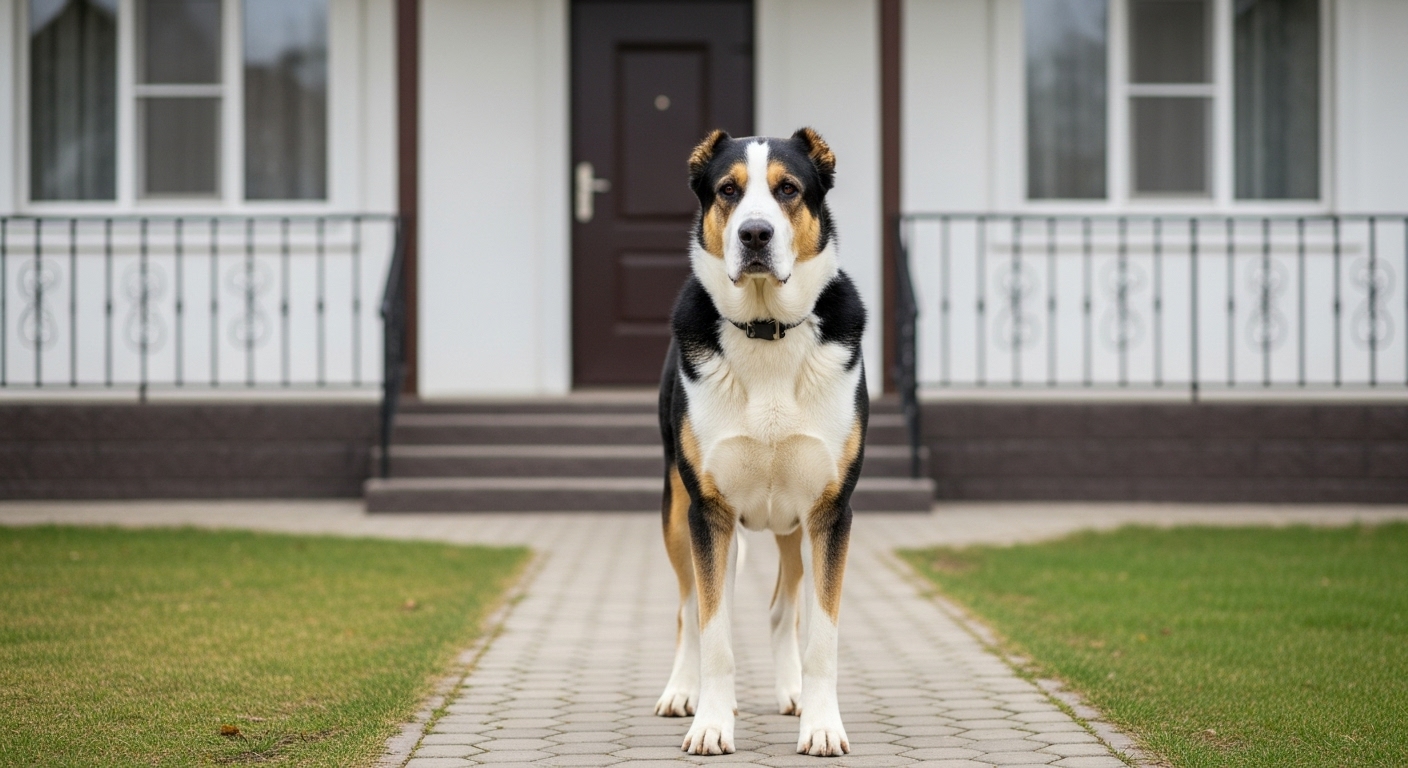Think your dog will suddenly turn from aloof to cuddly? Science says—don’t hold your breath. A 2025 Virginia Tech study, based on four years of owner-reported data from over 47,000 dogs, found that while traits like fear and attention shifted slightly over time, overall behavioral profiles remained remarkably stable—dogs don’t change their stripes easily.
Yes, dogs resist change more than we do. Some breeds decided long ago that cuddles are optional and guard duty is an acceptable excuse for emotional distance.
Enter the world of “independent dogs”: those who patrol your realm while ignoring your “come here” in favor of napping. They’re low-maintenance, low drama, and high in territorial dignity.
For relaxed pet owners, these breeds are like hiring a guard who doesn’t text you for attention.
So buckle up (or don’t, your dog won’t care). Here are the 7 independent yet protective dog breeds— breeds that protect, snooze, ignore, repeat.
Most Independent Guard Dog Breeds For Relaxed Pet Owners
1. Tibetan Mastiff
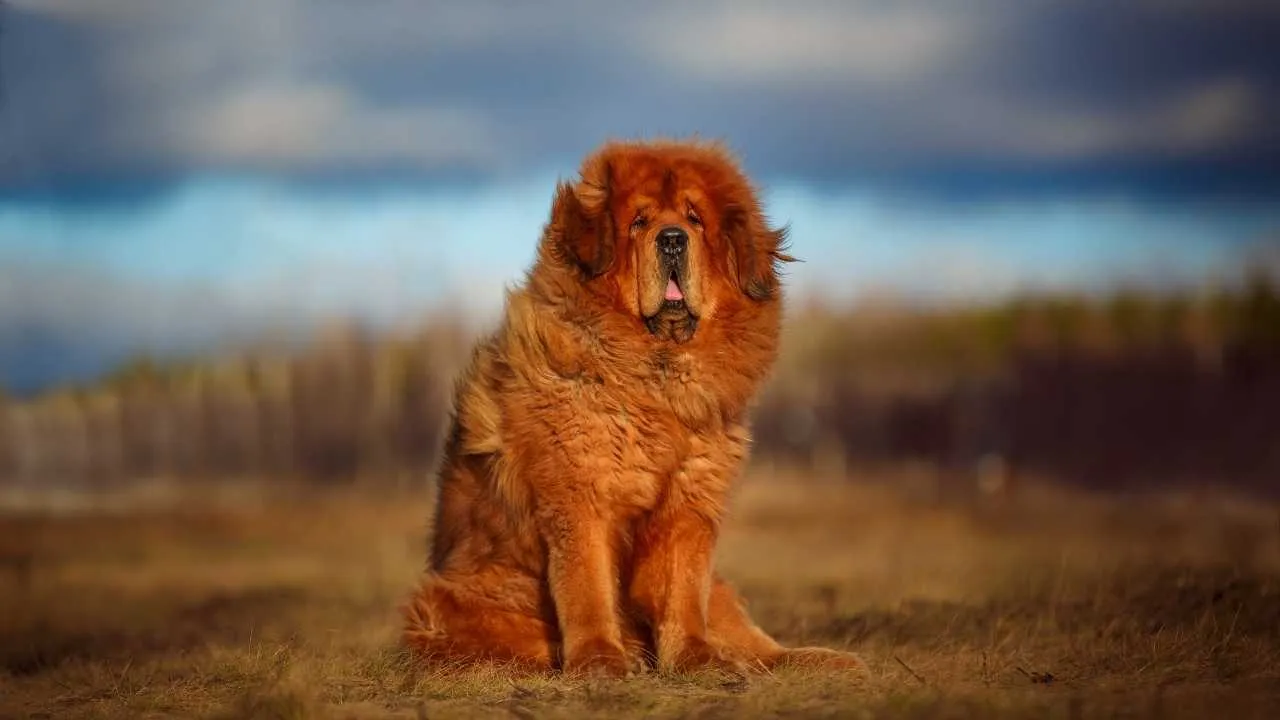
Behold the canine version of a lonely mountain sentinel: the Tibetan Mastiff is independence incarnate, with a guarded gaze that says, “I watch the perimeter — don’t bug me.” Bred for remote Himalayan outposts, this breed evolved to protect flocks and households with minimal direction.
They’re intelligent, stubborn, and utterly fine with long stretches of solitude — in fact, many thrive when trusted to self-manage their territory. Their aloofness isn’t apathy, it’s selective loyalty: if you earn their respect, you get quiet devotion.
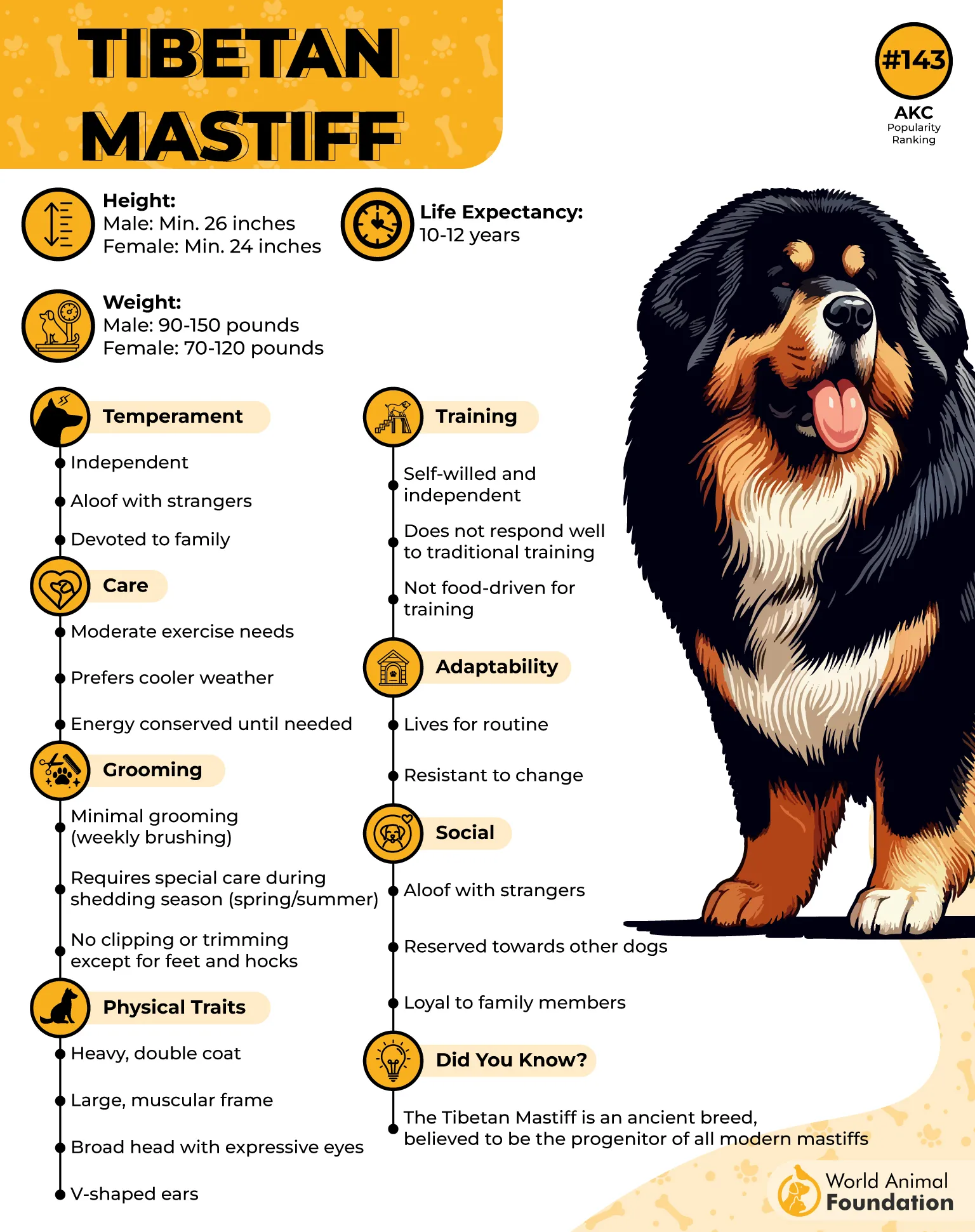
Independence level: Extreme — expects to make decisions
Common behavior problem: Stubbornness, selective obedience
Trainability: Challenging — requires consistent, respectful leadership
Socialization tip: Expose early to people, sounds, and territory
Exposure tip: Rotate environments so they don’t become territorial
Reward tip: Use value-based rewards (meat, praise) to win their buy-in
WebMD shares: think of this dog as the ultimate “silent guardian” who doesn’t need constant walks or attention.
Give them space, early socialization, and a secure yard, and they’ll happily manage the night shift while you binge Netflix in peace. They’re best for owners who appreciate loyalty without clinginess.
2. Central Asian Shepherd

This is not your couch potato protector. The Central Asian Shepherd (Alabai) is built for autonomy — its very DNA demands latitude to roam, assess threats, and act. These dogs were bred across the steppes to guard livestock from wolves without human micromanagement.
They are smart, discerning, and require downtime. They don’t thrive on constant praise or repetition — they prefer to be trusted with responsibility. But mismanage trust, and you’ll get a guard dog who ignores commands.
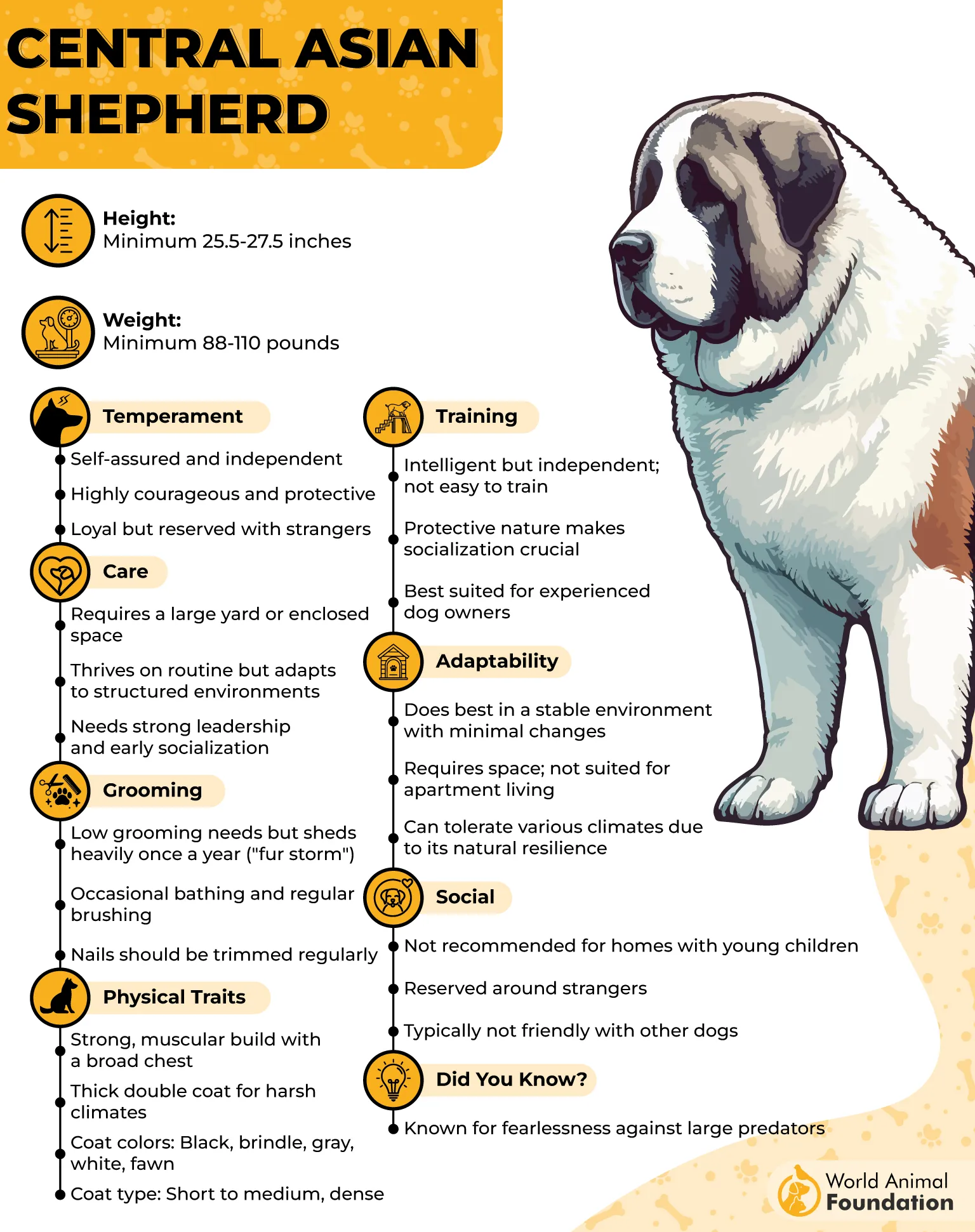
Independence level: Very high — built for self-reliance
Common behavior problem: Overprotectiveness, territorial aggression
Trainability: Moderate to difficult — needs firm leadership
Socialization tip: Introduce numerous strangers early (with control)
Exposure tip: Vary terrain, animals, and sounds
Reward tip: Combine privileges (territory access) with training rewards
PetMD reveals that this isn’t your typical suburban companion — they’re happiest when given a job and some breathing room.
If you’ve got land, livestock, or just value a watchdog who doesn’t constantly beg for attention, the Central Asian Shepherd is your match. They’ll guard, observe, and quietly keep your world in check as one of the most protective dog breeds.
🎧 Dogcast
Episode 33 — If Dogs Could Talk — “How Dogs Say No”
If you don’t hear sound, tap the button above to enable audio.
3. Kangal
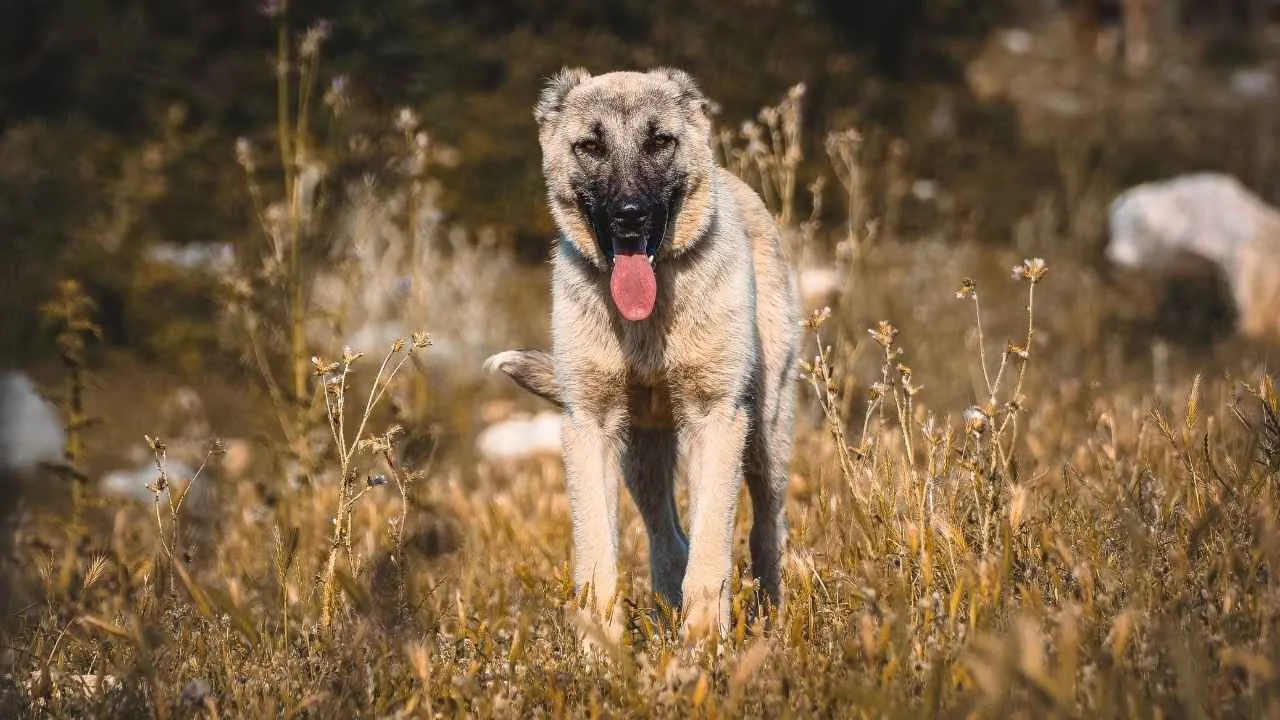
The Kangal is like a shepherd’s silent sentinel — calm in repose, ferocious when needed. Bred in Sivas, Turkey, their mission has always been to guard flocks with the latitude to judge threats on their own terms.
These dogs think. They won’t follow commands blindly; instead, they evaluate context before acting. Because of that, they’re one of the more reliably independent livestock guardians. They’ll stay put, ignore trivial distractions, and intervene only when it matters.
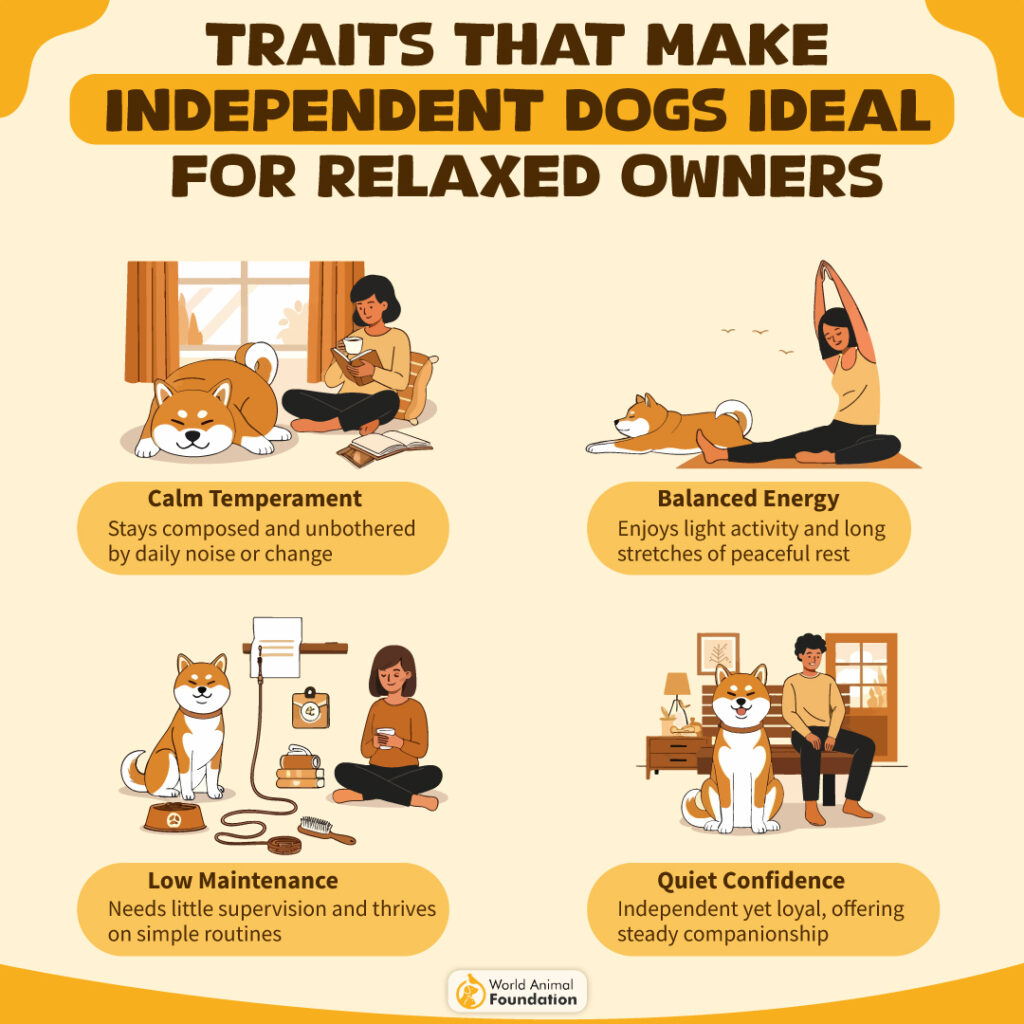
Independence level: Very high — built to act alone
Common behavior problem: Testing boundaries, selective obedience
Trainability: Tough — must earn their respect
Socialization tip: Gentle exposure to many breeds and people
Exposure tip: Practice visits to diverse environments
Reward tip: Use tasks that give them purpose (guarding assignments)
Kangals are calm roommates who don’t sweat the small stuff but spring into action when things get serious.
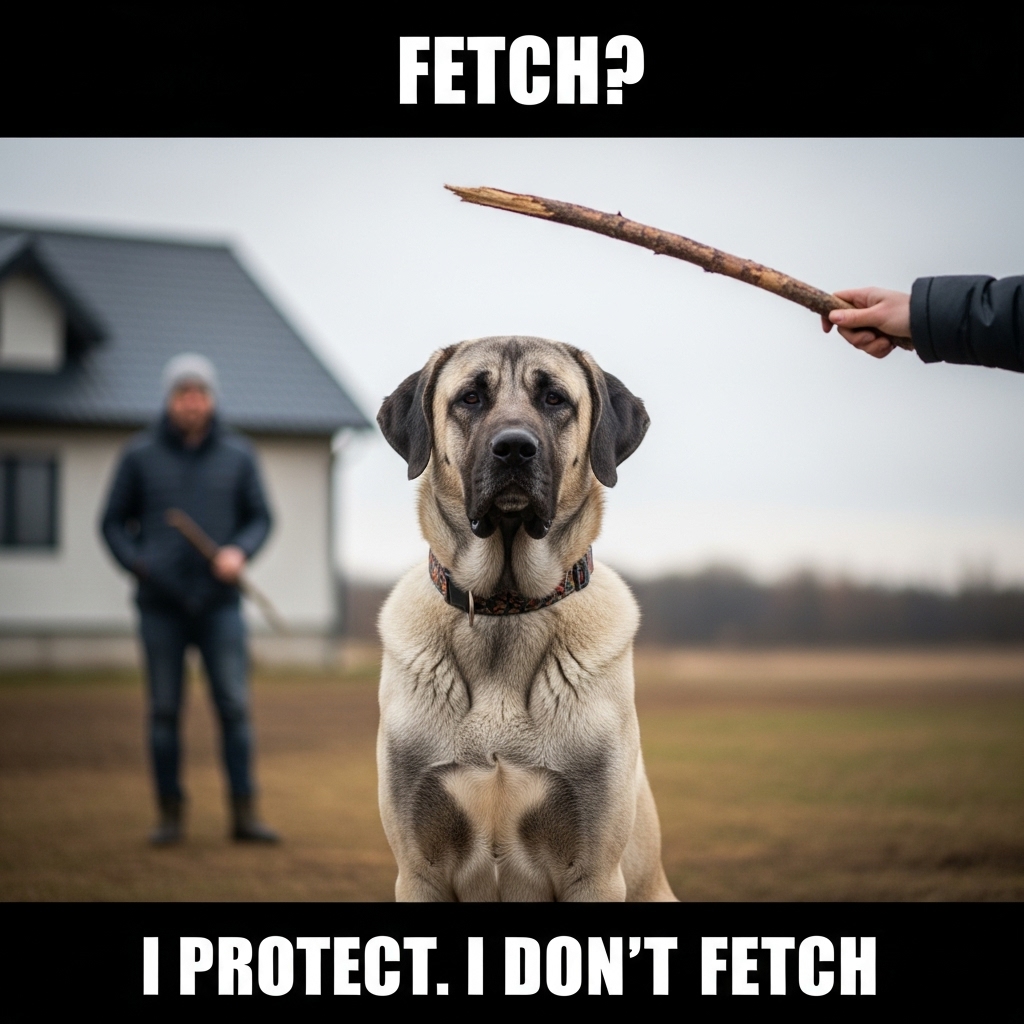
They’re wonderful for people who like a steady, confident protector that doesn’t hover or demand attention. Just provide structure, space, and trust — they’ll do the rest with quiet confidence.
4. Akita
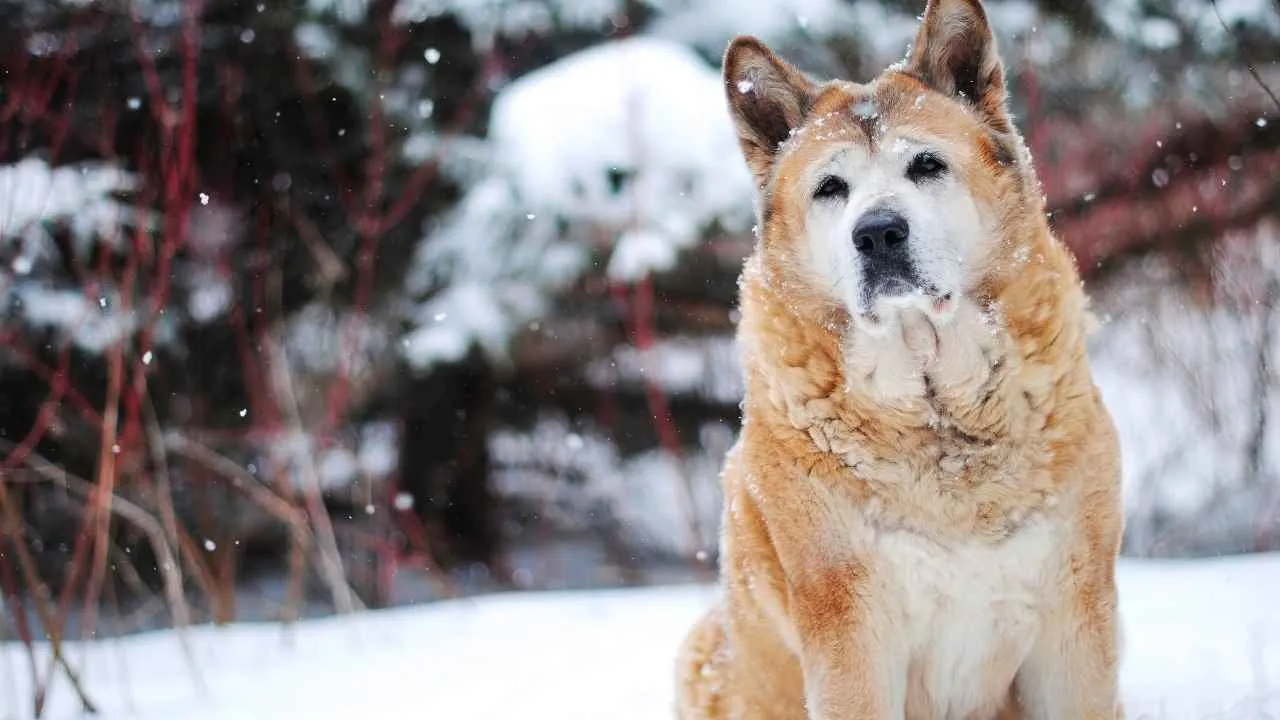
Imagine a stoic samurai in fur form — the Akita radiates independence and dignity, and it’s very clear they didn’t come here to cuddle 24/7. They were bred to guard royalty and estates, so their protectiveness is hardwired.
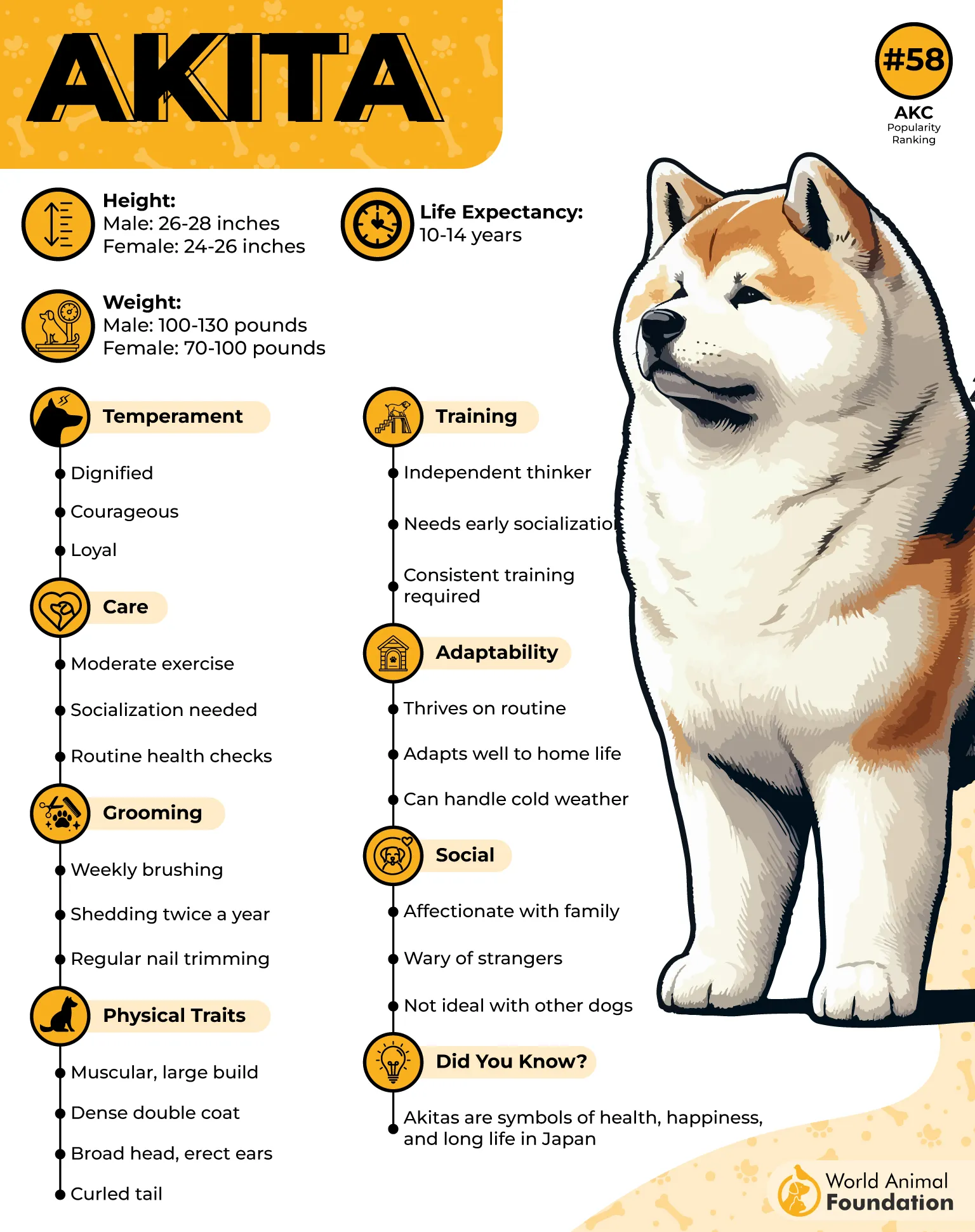
These dogs are sharp, opinionated, and don’t suffer fools lightly. They’re fine being alone (as long as they’ve got structure) and will decide when you deserve their attention.
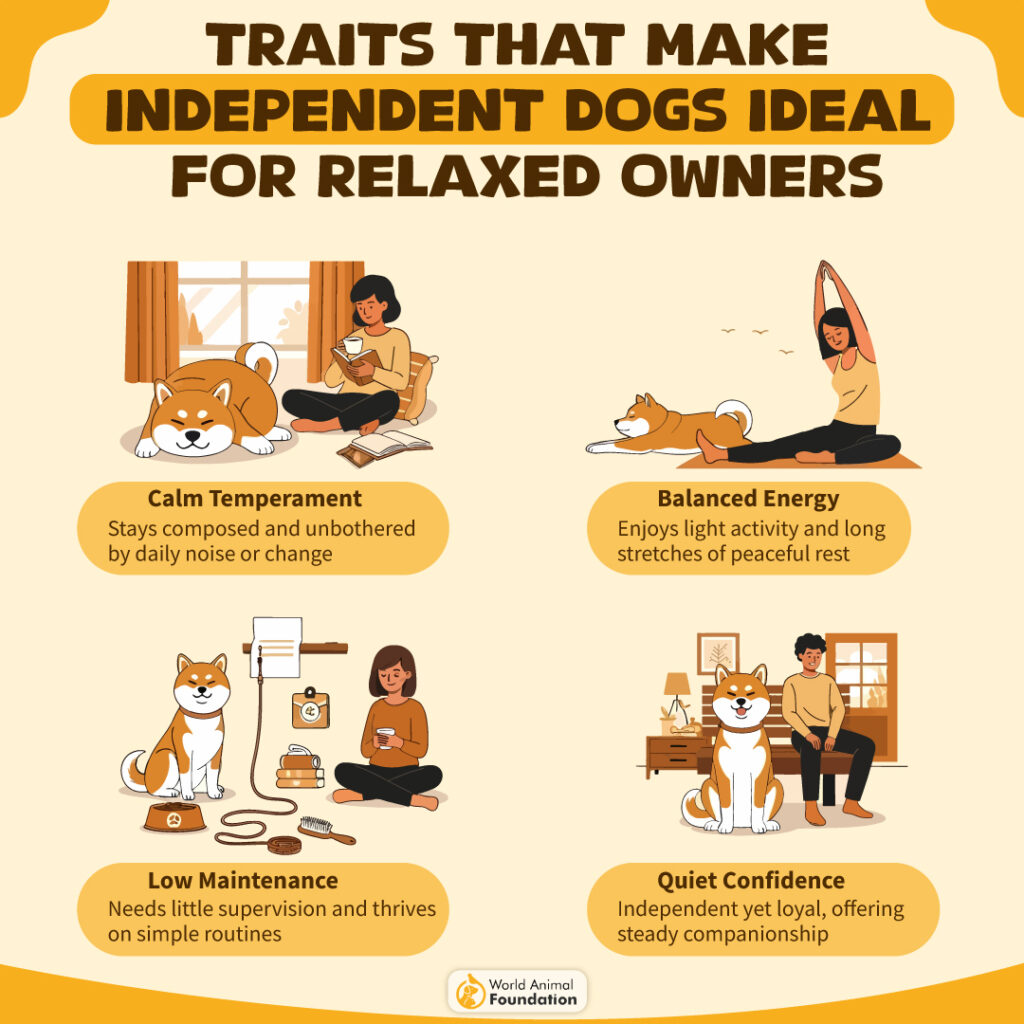
Independence level: High — they make decisions, not follow blindly
Common behavior problem: Stubbornness, dog aggression
Trainability: Difficult — you need consistent, respectful leadership
Socialization tip: Introduce many dogs and people early
Exposure tip: Vary terrain, sounds, and guests
Reward tip: Use meaningful rewards (meat, praise) to get buy-in
They have a reserved but loyal temperament: calm with family, aloof with strangers. Their guarding style is subtle — they observe, then act.
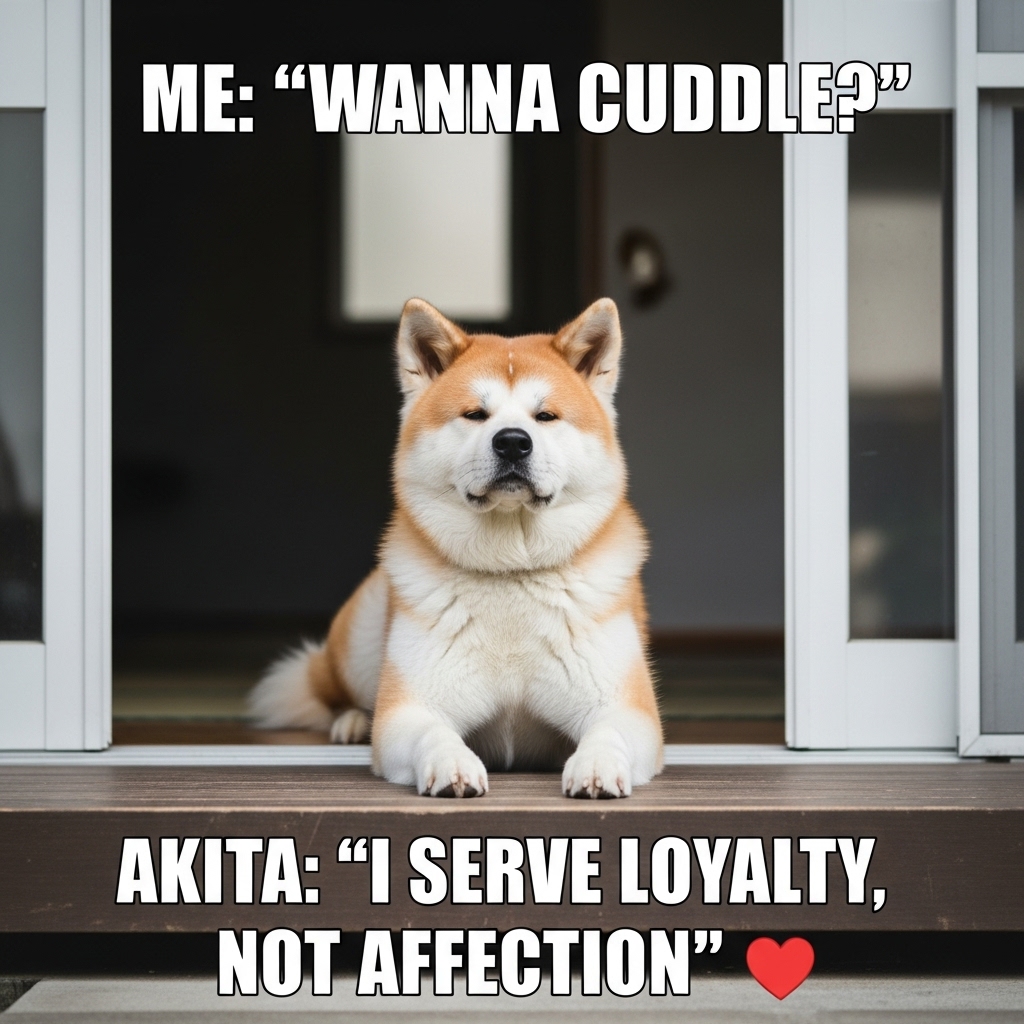
Energy needs are moderate; daily walks and roaming time suffice. Best in a structured environment with an owner who doesn’t confuse respect with fear.
5. Rottweiler
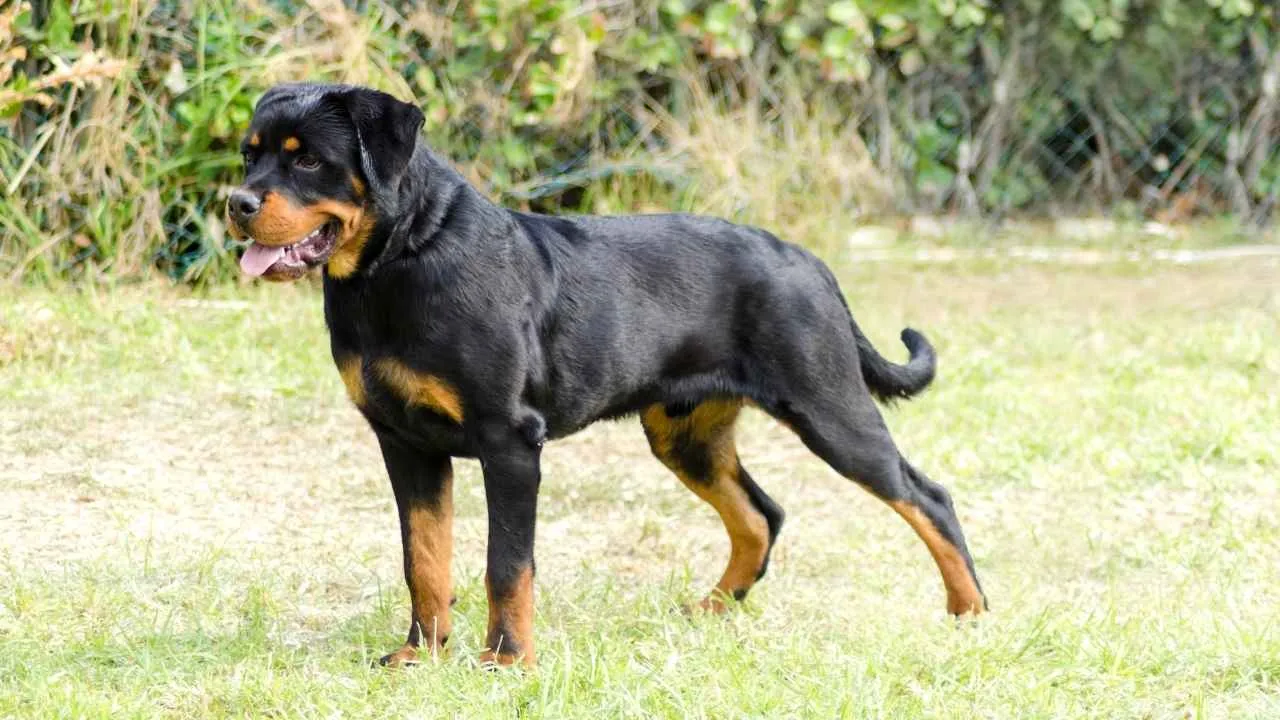
Meet the Rottweiler: part guardian, part aloof roommate. They don’t need babysitting — they already know where their post is. Their confident aloofness often says more than barking ever could.
Intelligent, adaptable, and self-assured, a well-raised Rottie handles alone time without melting down. They’re not clingy, but they watch you like a hawk from the sidelines.
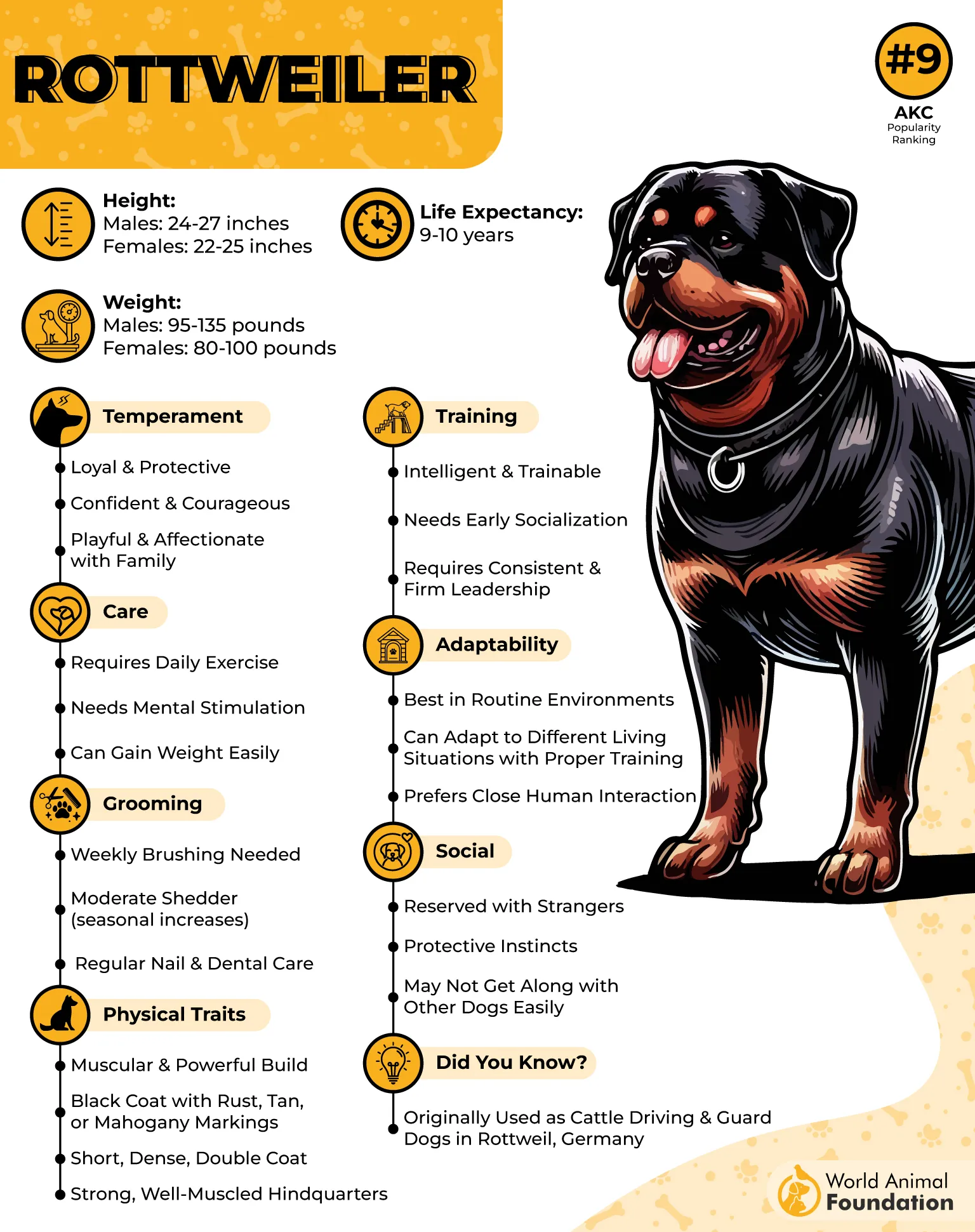
Independence level: Moderate-high — they enjoy purpose
Common behavior problem: Overprotection, guarding, overreach
Trainability: Strong — responds well to authoritative kindness
Socialization tip: Meet many people, animals, and noises
Exposure tip: Car rides, unfamiliar settings, friends over
Reward tip: Use structured tasks (fetch, obedience) as a reward
Rottweilers are steady, bold, and assertive. Their guarding style combines intimidation with physical presence.
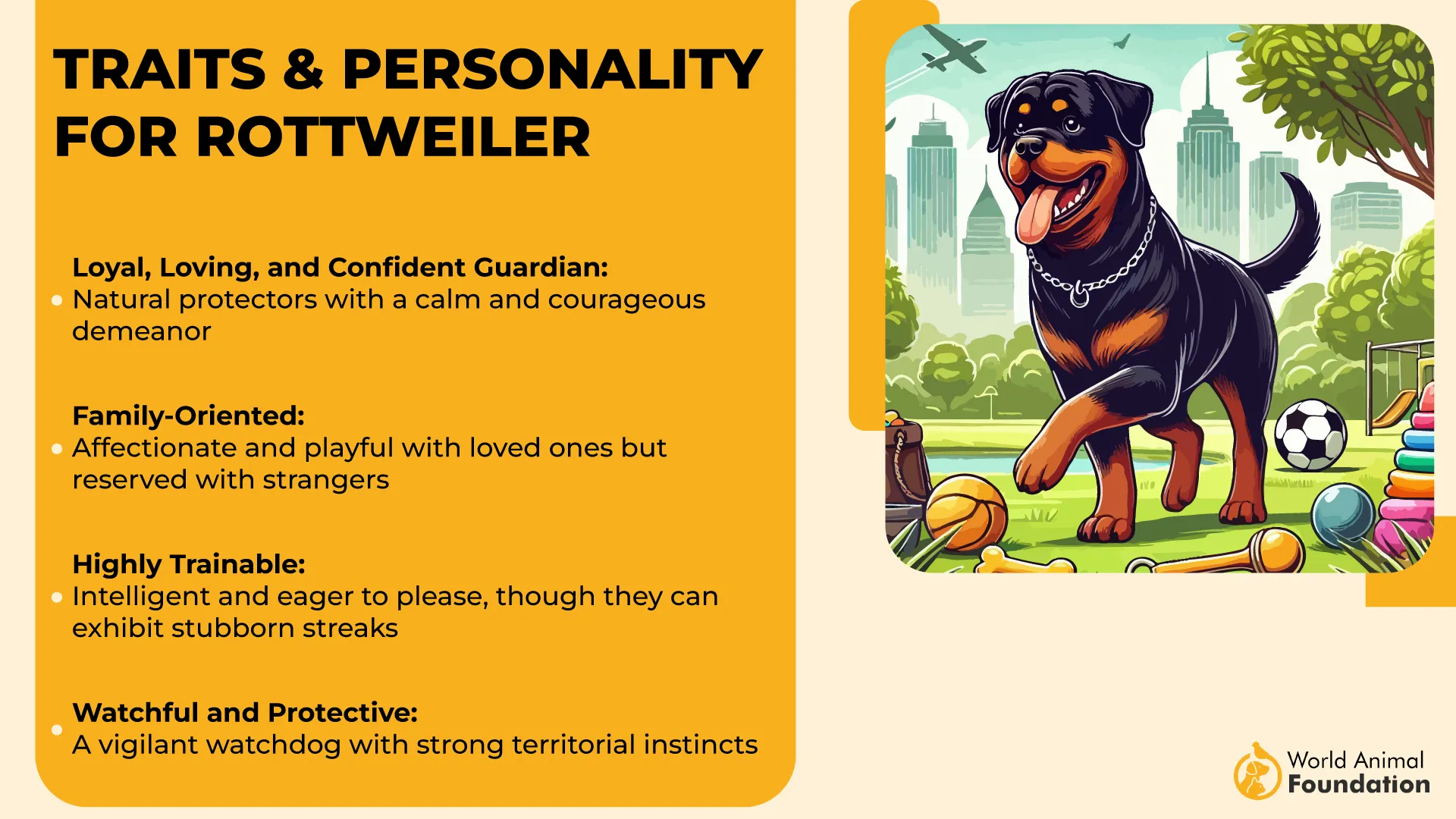
Energy level is moderate to high — they enjoy daily activity. Ideal for owners ready to lead — firm but fair — in homes where they’re part of the team.
6. Great Dane
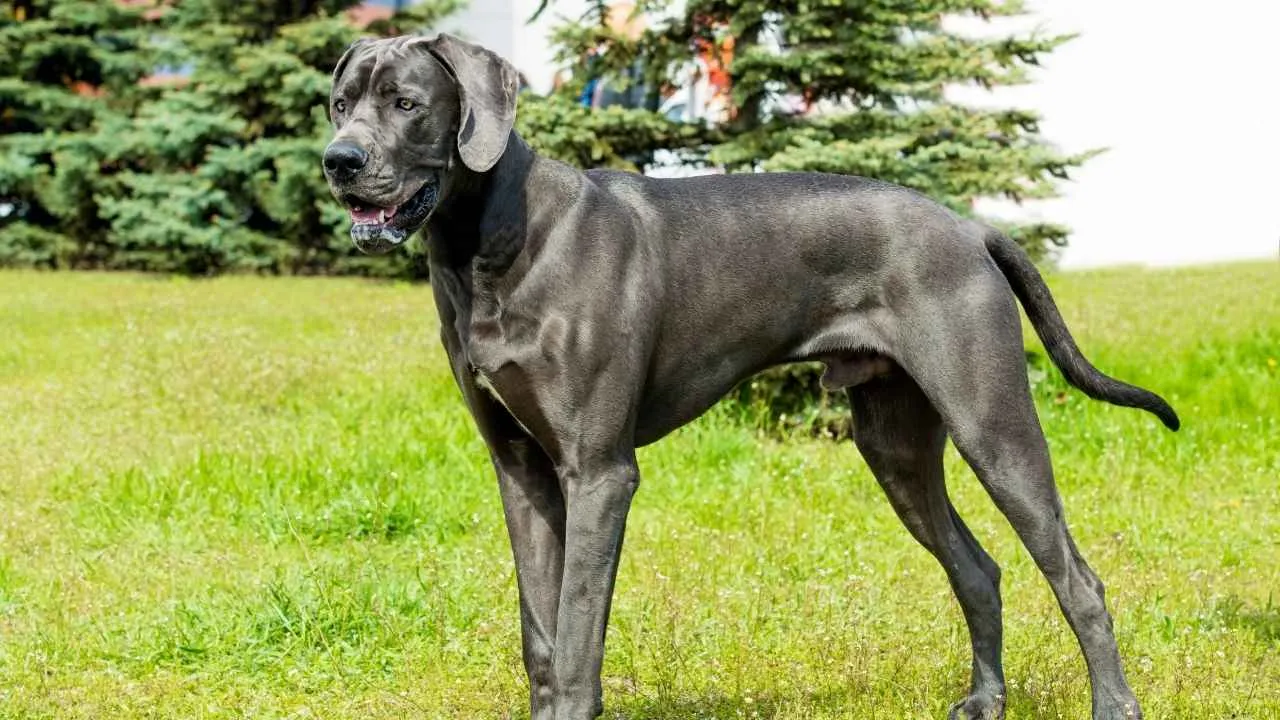
Don’t let their “gentle giant” label fool you — the Great Dane can be an imposing presence without needing to bark every five minutes. Their size alone gives an aura of guarding authority.
Smart, somewhat lazy, and observant, they won’t chase squirrels all day (thankfully). They prefer to chill until there’s a real disturbance — then step in.
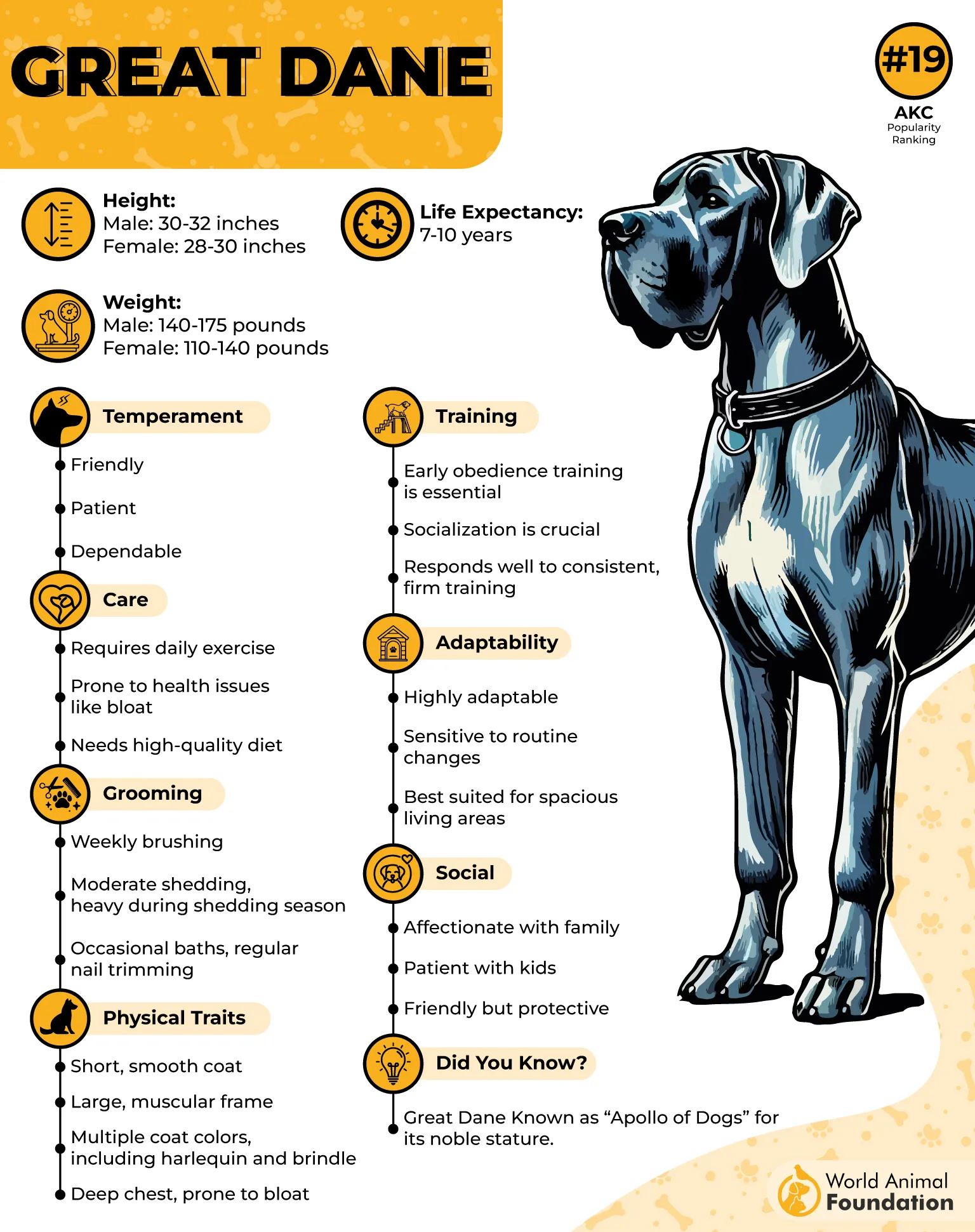
Independence level: Medium — they don’t need constant direction
Common behavior problem: Lack of drive, friendliness to a fault
Trainability: Moderate — large size demands consistency
Socialization tip: Expose them to many people, especially children
Exposure tip: Daily walk variety — parks, streets, new routes
Reward tip: Use praise + soft treats (they’re not overly food-driven)
Their temperament is gentle, calm, and observant. For guarding, they rely on presence and measured action rather than aggression.
Energy needs are low to moderate — they enjoy lounging but need gentle strolls. Best for someone who wants a big protector without the “on duty 24/7” drama.
7. Shiba Inu
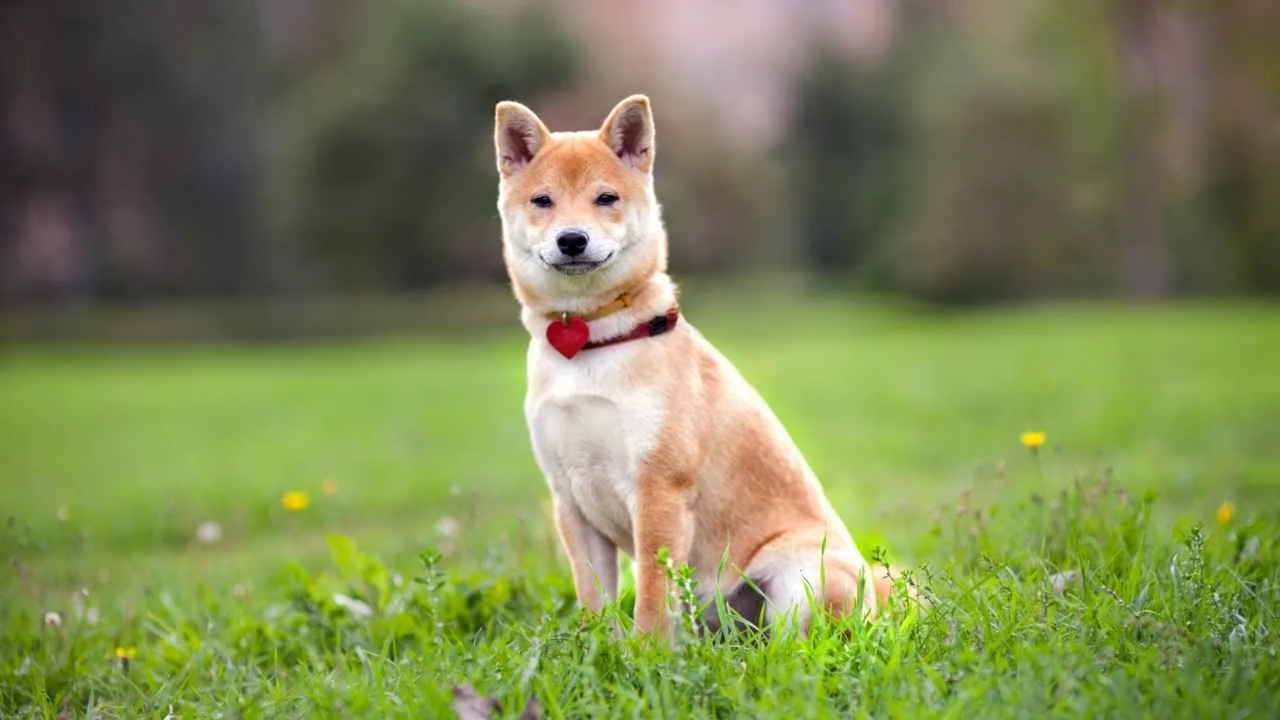
Ah, the Shiba Inu — part fox, part aloof roommate, part alarm system. They guard in the “I see you there, I might bark, but only if I feel like it” style.
AKC claims that clever, independent, and resourceful Shibas manage solitude with ease. They’re proud dogs who like to pick and choose their interactions.
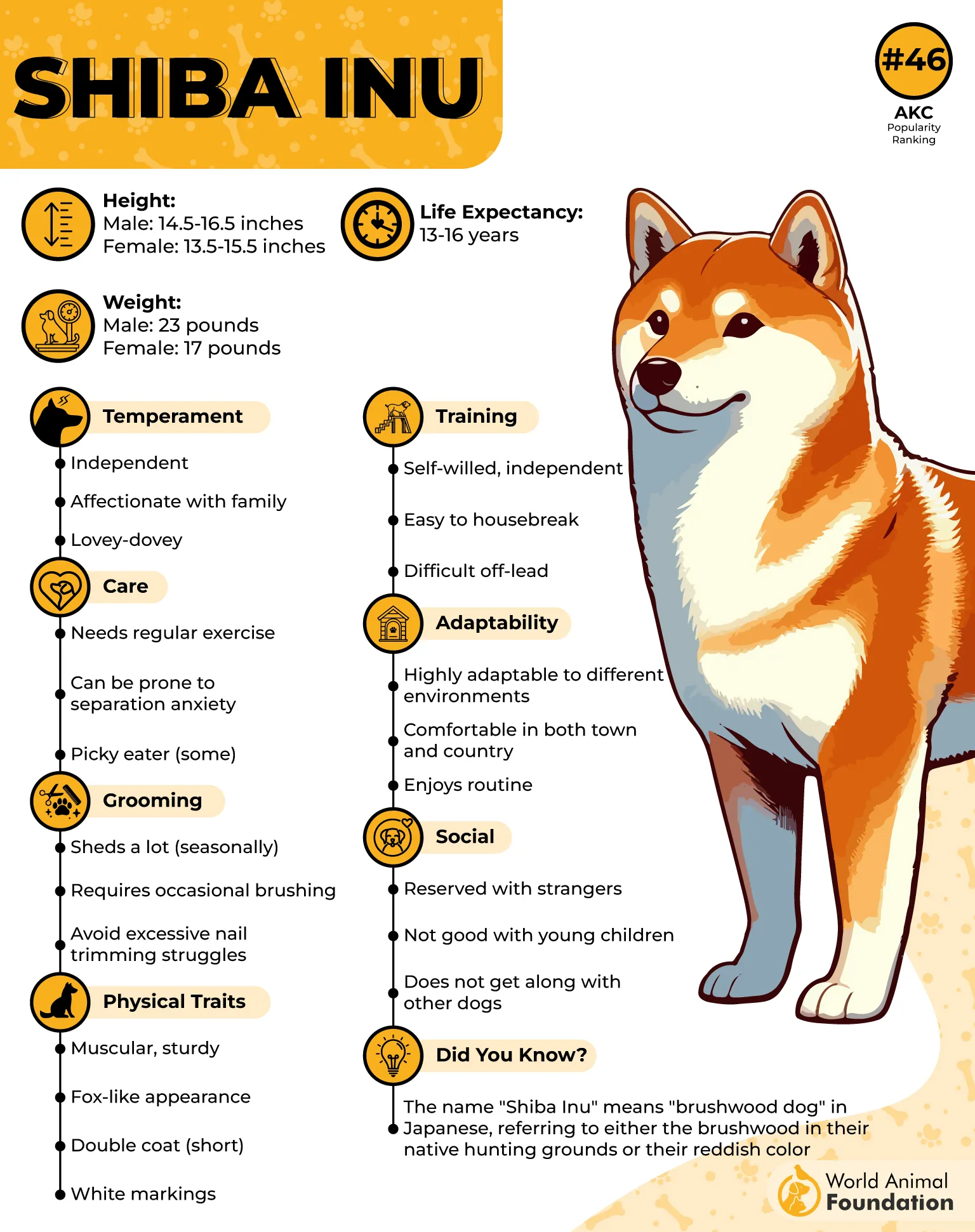
Independence level: Very high — they march to their own drum
Common behavior problem: Stubbornness, escape attempts
Trainability: Challenging — they obey only when convinced
Socialization tip: Frequent outings, puppy classes, and new faces
Exposure tip: Introduce distractions early
Reward tip: Discover their favorite motivators (toys, praise)
Their temperament is bold, alert, and sometimes aloof. In guarding, they’re alert watchmen — they bark at odd things and keep eyes sharp.
Energy level is moderate — they need daily mental and physical work. Ideal for a confident owner who understands that a Shiba doesn’t follow — they choose to follow you.
FAQs
1. Can independent guard dogs adapt well to relaxed household routines?
Yes, many independent breeds thrive in calm settings. With consistent training and proper socialization, they settle into a relaxed lifestyle while still offering reliable protection. Their calm temperament makes them flexible for different routines.
2. Which guard dogs combine low-maintenance care with natural guarding instincts?
Breeds like the Tibetan Mastiff, Kangal, and Central Asian Shepherd are excellent choices. They need less constant attention but retain a strong natural protective instinct. This makes them effective guard dogs without demanding endless activity.
3. Do independent breeds still form strong bonds with families?
Absolutely. While they value space, they’re incredibly loyal once trust is built. With patience, obedience training, and regular exercise, they become great family dogs that balance companionship with security.
Conclusion
Finding the best guard dogs comes down to balance — independence, protection, and lifestyle fit. We looked at unique breeds like the Tibetan Mastiff and Kangal, but many popular guard dog breeds, such as the German Shepherd, Doberman Pinscher, or Belgian Malinois, are also known for their protective instincts and affectionate nature.
With proper training, regular exercise, and socialization from a young age, even the most powerful working dogs can grow into great family pets with a calm temperament.
If you’re ready for a fearless, loyal, and watchful companion, explore these excellent choices and find the right match for your loved ones.


